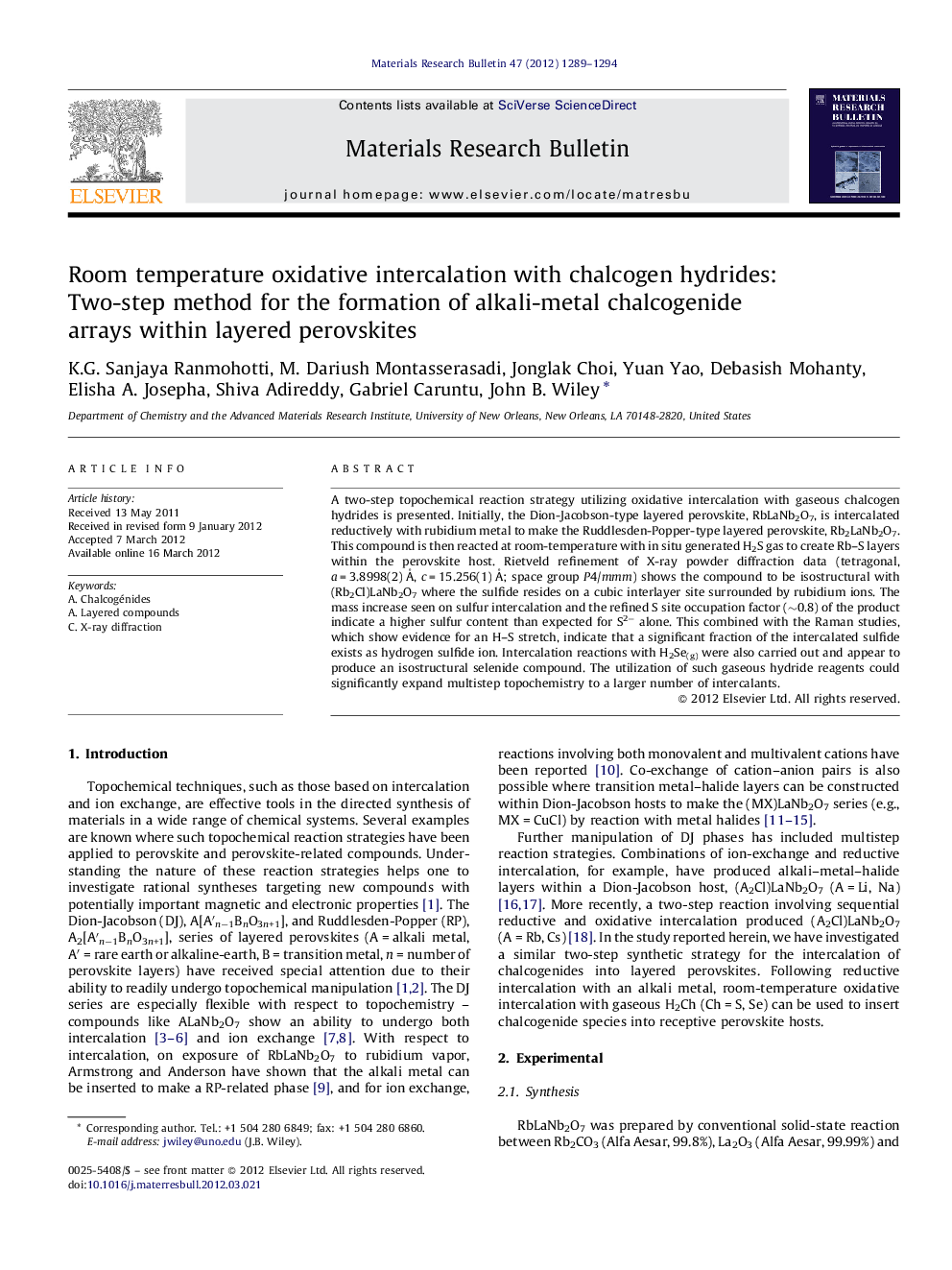| کد مقاله | کد نشریه | سال انتشار | مقاله انگلیسی | نسخه تمام متن |
|---|---|---|---|---|
| 1489749 | 992312 | 2012 | 6 صفحه PDF | دانلود رایگان |

A two-step topochemical reaction strategy utilizing oxidative intercalation with gaseous chalcogen hydrides is presented. Initially, the Dion-Jacobson-type layered perovskite, RbLaNb2O7, is intercalated reductively with rubidium metal to make the Ruddlesden-Popper-type layered perovskite, Rb2LaNb2O7. This compound is then reacted at room-temperature with in situ generated H2S gas to create RbS layers within the perovskite host. Rietveld refinement of X-ray powder diffraction data (tetragonal, a = 3.8998(2) Å, c = 15.256(1) Å; space group P4/mmm) shows the compound to be isostructural with (Rb2Cl)LaNb2O7 where the sulfide resides on a cubic interlayer site surrounded by rubidium ions. The mass increase seen on sulfur intercalation and the refined S site occupation factor (∼0.8) of the product indicate a higher sulfur content than expected for S2− alone. This combined with the Raman studies, which show evidence for an HS stretch, indicate that a significant fraction of the intercalated sulfide exists as hydrogen sulfide ion. Intercalation reactions with H2Se(g) were also carried out and appear to produce an isostructural selenide compound. The utilization of such gaseous hydride reagents could significantly expand multistep topochemistry to a larger number of intercalants.
Figure optionsDownload as PowerPoint slideHighlights
► Topochemical reactions involving intercalation allow construction of metal chalcogenide arrays within perovskite hosts.
► Gaseous chalcogen hydrides serve as effect reactants for intercalation of sulfur and selenium.
► New compounds prepared by a two-step intercalation strategy are presented.
Journal: Materials Research Bulletin - Volume 47, Issue 6, June 2012, Pages 1289–1294